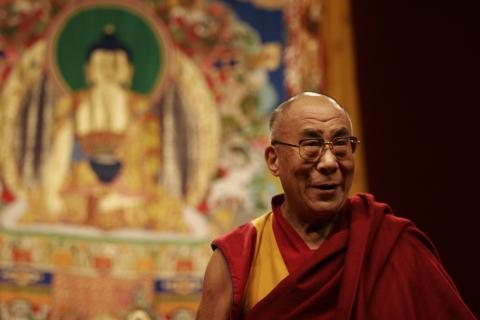
His Holiness the Dalai Lama: Greatest happiness? Many occasions. One I remember, the next day of my escape from Tibet.
His Holiness the Dalai Lama on depression, Dalai Lama Institution, Tibet
His Holiness the Dalai Lama: Greatest happiness? Many occasions. One I remember, the next day of my escape from Tibet.